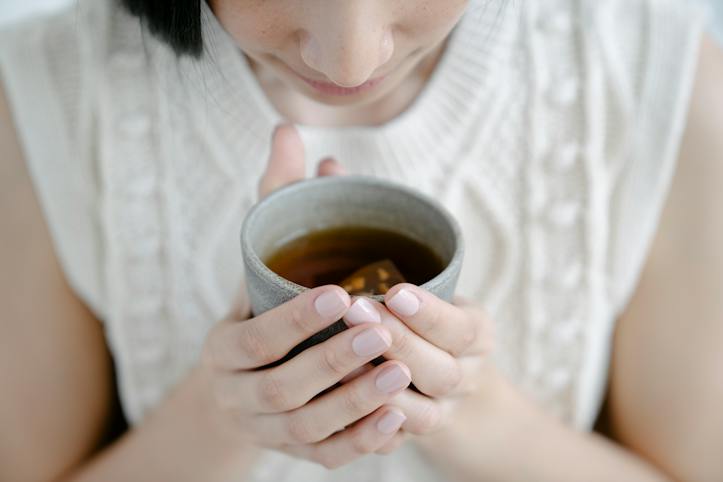Fasting Tea Benefits During Intermittent Fasting

When embarking on an intermittent fasting journey, many individuals seek ways to enhance their experience and results. Fasting tea, particularly herbal tea, can be a beneficial addition to this dietary approach. Here’s how incorporating herbal tea into your intermittent fasting routine can support your wellness goals.
Understanding Intermittent Fasting and Its Benefits
Intermittent fasting is a dietary pattern that alternates between periods of eating and fasting. It does not prescribe specific foods but rather when you should eat them. There are various methods of intermittent fasting, such as the 16/8 method, where you fast for 16 hours and eat during an 8-hour window, or the 5:2 method, which involves eating normally for five days and restricting calories for the remaining two.
The benefits of intermittent fasting are wide-ranging and include improved metabolic health, weight loss, and even a potential increase in lifespan. Fasting can help to reduce inflammation, improve brain health, and support the body’s natural detoxification process.
The Role of Fasting Tea in Intermittent Fasting
Herbal tea can be a great companion during fasting periods. Not only does it help to alleviate feelings of hunger, but it also provides hydration and can contribute to the overall health benefits associated with fasting.
Choosing the Right Herbal Tea
While there are many teas available, not all are suitable for fasting. It’s important to select herbal teas without added sugars or artificial ingredients. Common fasting-friendly options include green tea, peppermint tea, ginger tea, and chamomile tea.
Green Tea: Rich in antioxidants and known for its metabolism-boosting properties, green tea can enhance the fat-burning effects of intermittent fasting.
Peppermint Tea: Peppermint tea can help to suppress appetite and soothe digestive issues, making it easier to get through fasting periods.
Ginger Tea: Ginger has anti-inflammatory properties and can aid digestion, reduce nausea, and promote a sense of well-being during fasting.
Chamomile Tea: Known for its calming effects, chamomile tea can reduce stress and promote better sleep, which is crucial during fasting.
The Impact of Fasting Tea on Hunger and Hydration
One of the main challenges of intermittent fasting is managing hunger. Drinking herbal tea can provide a comforting and satisfying experience without breaking your fast. Herbal teas are naturally low in calories and can be consumed throughout your fasting window. Moreover, staying well-hydrated is essential during fasting, and herbal teas contribute to your daily fluid intake.
Enhancing Detoxification:
Intermittent fasting naturally initiates a detoxification process called autophagy, where cells remove toxins and repair themselves. Certain herbal teas, such as milk thistle or dandelion tea, can support liver health and enhance the body’s detoxifying capabilities.
Potential Interactions and Considerations
Although fasting tea is generally safe, it’s important to be aware of potential interactions with medications or underlying health conditions. For instance, some teas can affect blood sugar levels or blood pressure. Always consult with a healthcare professional before introducing herbal teas into your fasting regimen, particularly if you have health concerns or are taking medication.
Preparing Your Fasting Tea
To reap the maximum benefits, prepare your herbal tea with hot water and avoid adding sweeteners or milk, which could break your fast. Steeping the tea for the right amount of time ensures the optimal release of flavors and health-promoting compounds.
Embracing a mindful approach to intermittent fasting and the inclusion of fasting tea can significantly enhance your fasting experience. Herbal teas offer a comforting, healthful way to support your body and mind during the fasting window, making your dietary journey both enjoyable and beneficial.
Discover how fasting tea, especially herbal tea, can support your intermittent fasting efforts by enhancing health benefits and managing hunger.
Recent Posts
- Fasting Tea Essentials: What Teas Can You Drink While Intermittent Fasting?
- Fasting Tea: Enhancing Your Intermittent Fasting Experience
- Fasting Tea Benefits: Can You Drink Herbal Tea During Intermittent Fasting?
- Unlocking the Secrets of Matcha Tea for Rapid Weight Loss
- Fasting Tea Essentials: Choosing the Right Blend for Intermittent Fasting
- Fasting Tea Benefits: Intermittent Fasting Rooibos Tea
- Fasting Tea: Unlocking Health Benefits with Green Fit Tea
- Fasting Tea: Exploring Herbal Options for Your Regimen
- Can I Drink Barley Bergamot Green Tea for Fast Weight Loss?
- Herbal Fasting Tea Amazon: A Guide to Choosing Your Blend
External articles
Time-Restricted Eating. Often deemed the easiest to follow of all of the various intermittent fasting plans, this generally takes the form of the 16:8 method, (fast for 16 hours and eat normally for the next eight hours) or the 14:10 method (fast for 14 hours and eat normally for the next 10 hours). Eat Stop Eat.
If you've ever wondered the same things, stay with me. Herbal teas, green teas, and black teas with no additives do not break a fast. Sweeteners, artificial sweeteners, or creamers added to tea would break a fast. To maintain a fast, include only plain teas with no added ingredients.
There are different versions of intermittent fasting, but some of the most common methods are 16:8 (fast for 16 hours and eat within an 8-hour window) and 5/2 (eat normally for five days and restrict calories for two days). Water Fasting. Water fasting is the practice of abstaining from all food and drink except for water.
